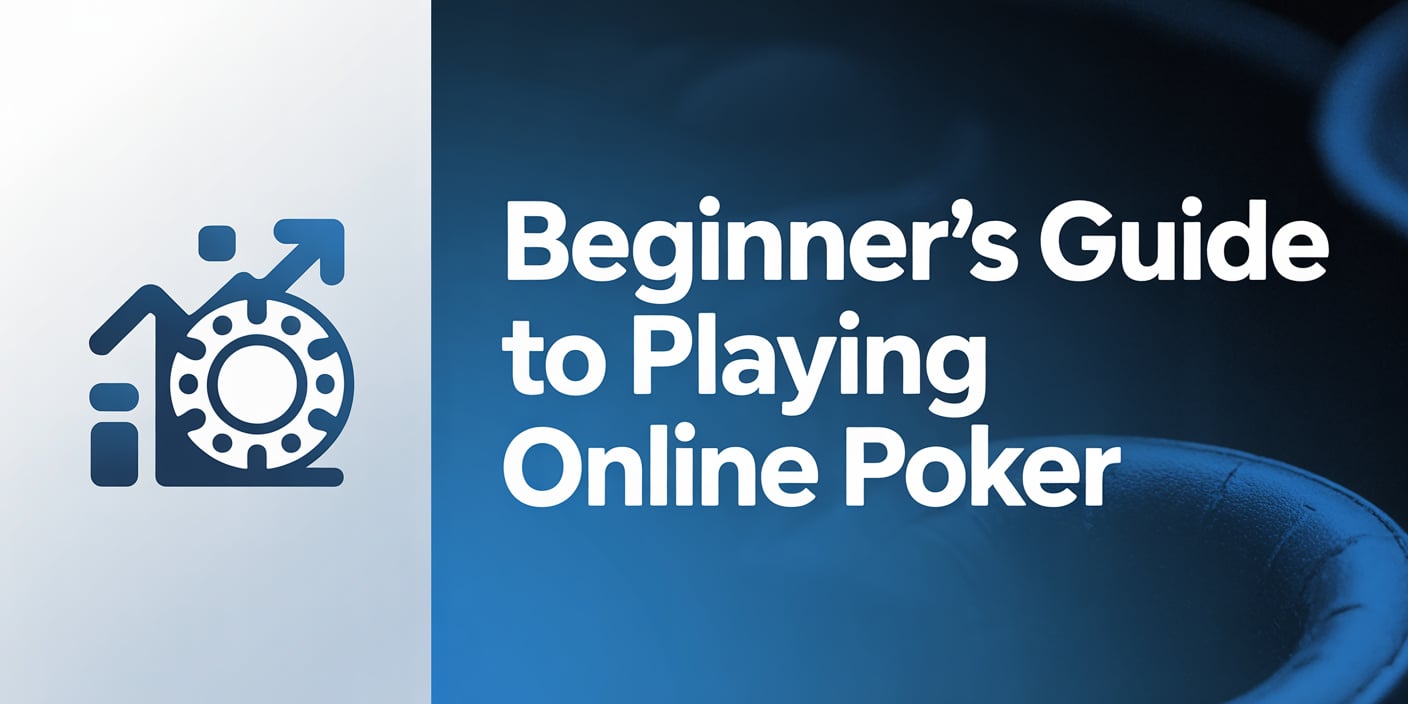
Online poker is an enjoyable online game where anyone can challenge his or her skill against people in cyberspace. However, the global domain of online poker can be bewildering to find yourself lost in for those who are new to it. This guide offers you a whole picture of what you should know how to play online poker efficiently and securely. If you seek an amateur poker website, compare websites by reading reviews on Techopedia and determine the best and most reliable website for your needs. You can also review crypto-friendly websites by going to the best bitcoin poker sites to play at.
What is Online Poker?
Online poker is a computer version of the card game, played over the internet on a computer, tablet, or mobile. Games and tournaments are played in online poker rooms against other players. The most widely played poker forms are Texas Hold'em, Omaha, Seven Card Stud, and Razz.
Online poker allows a player to play from any location and at any time, thus it is much more popular than live play. Online poker sites provide bonuses and promotions for both new and frequent players, thus playing seems more attractive.
The real money is placed on internet poker, with real-time winnings and losses. Winning relies on strategy, skill, and a bit of luck. You can improve at the game while playing and gain experience. Honest play and security are important factors tightly controlled by authentic poker sites.
Poker Basics and Strategy
One of the most important poker concepts is a "hand" — a set of five cards that the player builds in order to employ in an attempt to win at the game. "Blinds" are obligatory bets placed by two players before cards are dealt out. A "betting round" is the period during which betting, raising, or folding are possible actions taken by players. The "showdown" is where all the other players lay down their hands, and the highest hand wins the pot. Texas Hold'em is the most widely played variety of poker, where each player receives two concealed cards and they have five shared cards.
Bluffing is another giant one where a player pretends to have a hand that is stronger than the hand he possesses. Players take turns at being dealer, and betting sizes are adjusted depending on the type of game. Learning these basics will allow new players to play with confidence and get better with time.
How to Choose a Reputable Poker Site
Choosing a good poker room is a crucial very first step that will have a significant impact on your game. For starters, check the license and regulation of the website. Legitimate poker rooms are properly licensed and follow strict security protocols to ensure level play and safe money transaction. Check the reputation of the site by going through reviews and forum comments from members since user feedback can be a reliable indicator.
Promotions and bonuses are a major plus point, particularly for new members. All the sites boast attractive deposit bonuses and free entry to tournaments, but do do be sure to read the small print first to avoid getting caught out.
Ease of use of user interface and telephony support also play a crucial role in delivering a lag-free gaming experience across devices. Having access to a courteous customer support team that is available 24/7 is another big plus point for fixing problems within seconds. And finally, make sure that the site supports your preferred method of payment—be it credit cards, bank transfers, or e-wallets—and has instant, secure transactions.
Creating an Account
Setting up an account on a poker site is usually straightforward, but it’s important to do it carefully to ensure everything goes smoothly. Most sites feature a prominent registration button, typically at the top of the homepage. In the registration form, you’ll be asked to provide personal details such as your name, email address, birth date, and home address. Make sure the information is accurate to avoid problems later on, especially when withdrawing money.
After you have filled out the form, you will be primarily asked to verify your email address. Your email address will be sent an email with a verification link click on it to validate your account. Some websites may also ask you to validate your age by uploading an image of your ID or a proof of age. This is included in their security measure to avoid being cheated and to avoid the players being underage.
After your account's been verified, you can make a deposit. All websites offer something as payment such as credit cards, online banking, wire transfers, and e-wallets. Choose the one that suits you best and follow the instructions on the screen. You might even get a welcome bonus, so do not forget to enter a promo code if asked for. As soon as your deposit is approved, you can start playing and enjoying yourself on the website.
Rules and Tips for Newbies
If you're a beginner at online poker, following some basic rules will make you a success and more fun to play. First, memorize the basic rules and strategies beforehand before you sit down and play for real money. Read about hand strengths and betting, raising, and folding.
Practice good bankroll management. Reserve a sum you are willing to spend and never bet more than you can lose. You will not get yourself into financial difficulties and poker can still be a game. Keep your emotions under control too. Poker is one hell of a game or one frustrating experience, but keep calm and cool. Do not let a losing streak get you out of your senses—rather, learn your lessons and benefit from them.
Train consistently and study the playing styles of more experienced players. Watch tutorials, read strategy articles, and participate in free games to build your skills. Over time, you’ll gain confidence and be ready to move on to higher-stakes tables and tournaments.